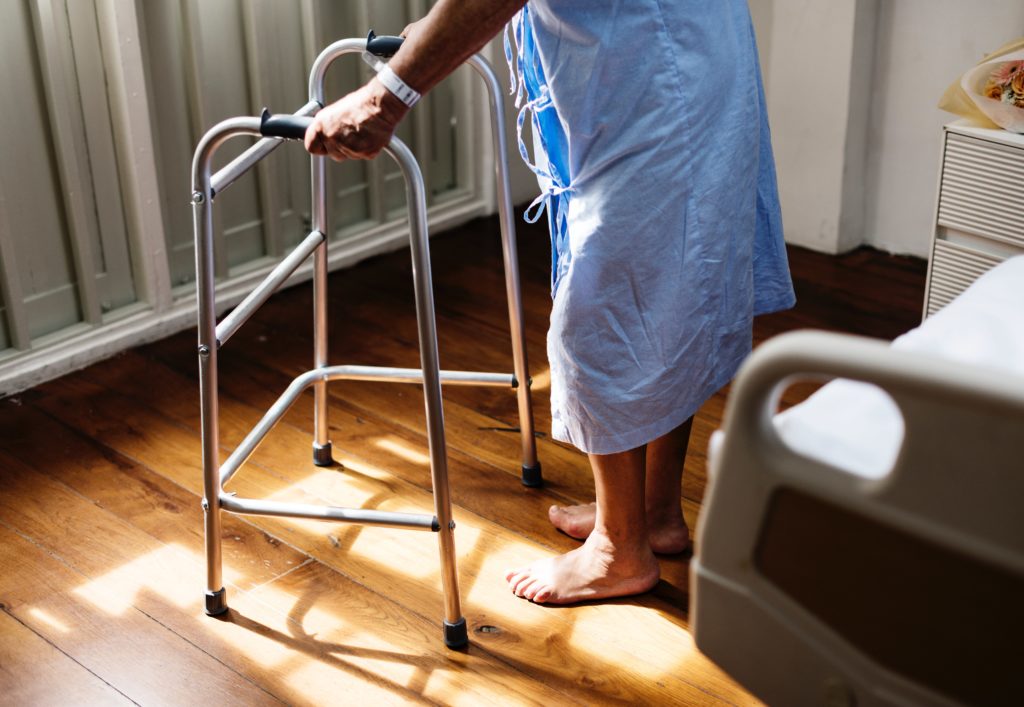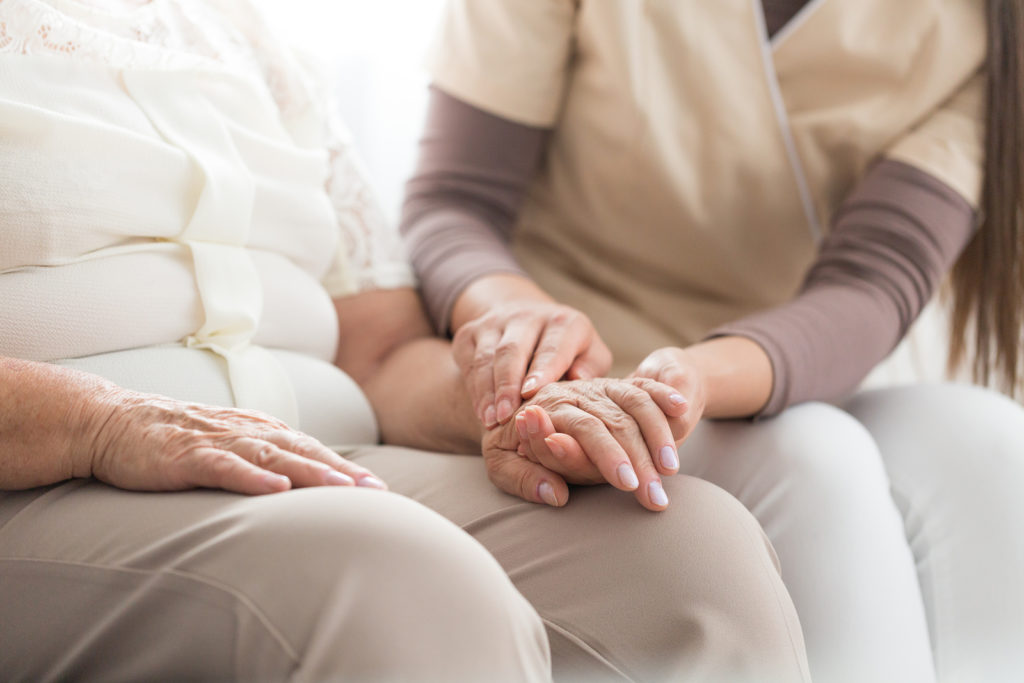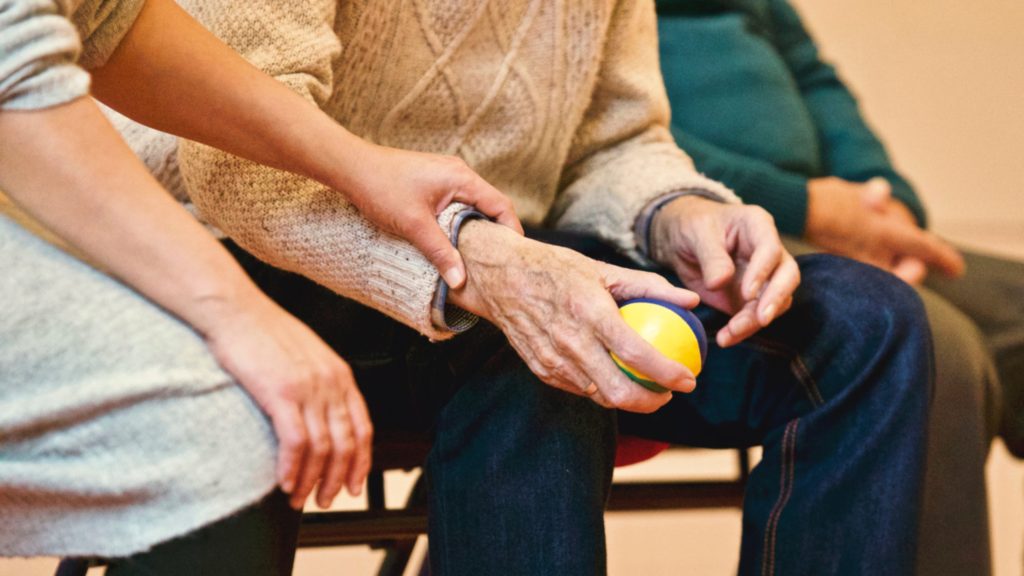
Feature
Aging Care Advice
When it comes to preparing for the care of an aging loved one, there’s a lot to know about assisted living, memory care, home care, rehabilitation and skilled nursing care. How do you know what to look for and what questions to ask?
Hopefully we’ve made it a little easier for you with the help of some local professionals.
From Karlie Haack,
Director of Sales & Marketing
Harbor Chase of Sarasota, an assisted living and memory care community
941.468.2838 | haronline.net
How can I prepare for assisted living?
Preparing for assisted living can be a difficult and emotional decision. At best, we don’t know where to start. We often wait until a serious life change occurs before we consider options.
Some best practices for preparing for your future is doing things like researching communities in advance. Get a feel for the type, style and culture of the community you might call home someday. Consider your medical needs as well as emergency management options. Many long-term care policies are available and give considerable financial peace of mind.
What do I need to know when researching for care for the future?
Know all your options! There are many types of care; familiarize yourself with Independent Living, Assisted Living, Memory Care and Long-Term Care Skilled Nursing communities. Find out the difference between them, so that when you are in need of senior living options you know what type of community to start with. Don’t be afraid to ask questions, like what type of license they have, staffing, nurse in the building and other things that you might personally find important when looking at a future home. Once the time comes when you might be considering making a move, know your budget. Find out what you can afford for monthly rent and care at a community.
What benefits pay for assisted living / memory care?
There are two types of benefits that will help pay for your rent and care at an Assisted Living and/or memory care. Long-term care insurance, which we touched on earlier and veterans benefits. To see if you qualify for veterans benefits or spousal benefits contact your local VA.
 From Michael Juceum,
From Michael Juceum,
Right at Home
Providing In-Home Care Services and individualized care programs
941.929.1966 | rightathome.net
What are some of the critical questions to ask when selecting a private duty home health agency?
While there are several questions to ask a potential agency when seeking care for a loved one, one of the most important is “Are caregivers your employees or are they independent contractors?” This is critical, because if the caregiver is an agency employee, the caregiver will be covered by workers’ compensation insurance, and the agency will be paying the applicable payroll taxes. This means that the family receiving the care will be insulated from liability if the caregiver is injured on the job, which happens far more often than people realize. It also means that whenever the caregiver seeks benefits such as social security, the government will not come looking for the family to help cover those costs.
My loved one needs 24/7 in-home care. Why isn’t that covered by Medicare?
Medicare never covers anything that is deemed to be long-term care. Medicare will cover a limited amount of in-home care while a person is recovering from an illness or injury, including a variety of therapies, wound care and limited (2-3 weekly half hour visits) for personal hygiene (bathing). Medicare never covers housekeeping, meal planning and preparation, grocery shopping, etc. In addition, Medicare will never cover ongoing daily assistance with what are known as Activities of Daily Living (ADLs), which including bathing, dressing, feeding, toileting and transferring. Ongoing ADL assistance is by definition “long-term care” and is beyond the scope of Medicare.
How do I know that it is time for my family member to have in-home care, or alternatively, to seek assisted living?
First and foremost, it is about safety. Ask the following question: “If my loved one is left alone, will they be able to recognize there is an emergency such as a fire, and will they be able to evacuate the premises without assistance in a timely manner?” If the answer to either part of the question is “no”, the person should not be left alone. The question then becomes whether to supply in-home care or look into assisted living, and there are multiple things to consider at that point, such as budget, interest in activities (socialization), and other lifestyle considerations.
 From Matthew Munding, Community Liason
From Matthew Munding, Community Liason
The Inn & Bayshore Place at Sarasota Bay Club, a Rehabilitation, Skilled Nursing and Assisted Living Center.
941.953.6949 | SarasotaBayClub.net
What is Skilled Nursing?
Skilled Nursing Care is for those who need ongoing long-term nursing care or for those who need short-term concentrated rehabilitation while recovering from an acute illness or surgery.
Who pays for Skilled Nursing?
Long-term nursing care is covered by long-term care insurance, Medicaid or private pay.
Short-term rehabilitation is covered by Medicare, Medicare Advantage and most commercial insurance plans.
Medicare Part A can help pay for your care in a Skilled Nursing Facility if you meet certain conditions:
- Three consecutive nights in an inpatient acute care hospital setting
- Admitted to Skilled Nursing Facility within 30 days of hospital discharge
- Physician certifies that you have a need for the skilled nursing and rehabilitation services on a daily basis
- Your condition requires daily skilled nursing services provided on an inpatient basis
- Your care in the Skilled Nursing Facility is directly related to your inpatient hospitalization
What should you look for in a Skilled Nursing Facility?
Ask for a list of all the services offered, the number of beds, amenities, about the staffing, cost and fees, and outcomes.
What is Cardio-Pulmonary Rehabilitation?
At The Inn, our Medically Complex Cardio-Pulmonary Rehabilitation Program is for patients who require comprehensive care for these and other conditions:
- Stroke
- Coronary Artery Bypass Graft Surgery (CABG)
- Pacemaker Care
- Congestive Heart Failure (CHF)
- Chronic Obstructive Pulmonary Disease (COPD)
- Emphysema
- External Defibrillators (Life Vest)
- Pleural Disorders – Myocardial Infarction (MI)
 From Wendy Brown,
From Wendy Brown,
Home Care Assistance
Providing high quality care based on a proprietary science-based approach.
941.702.5525 | homecareassistancemanasota.com
What is home care?
Home care is rooted in the principle that older adults should be free to age at home with the level of care they need to be safe and comfortable. To that end, most home care providers work hard to ensure that their clients are able to live as independently as possible while receiving the care they need to maintain a high quality of life. Our population is aging rapidly, and with an aging population comes an increased need for different care options, particularly when 9 out of 10 older adults have expressed a strong preference to “age in place” or stay in their own homes. In its simplest terms, home care means assistance with activities of daily living and household tasks. Ideally, home care also provides meaningful companionship for older adults and peace of mind for their families.
What concerns does aging present for each involved party?
For your parents, it may be fear of dependence or frailty or mortality. For your siblings, it may be feeling overwhelmed at the prospect of caregiving, or worried at the thought of your aging parents being alone in an emergency. It is important for everyone to communicate and address their concerns to prevent fear from overwhelming the conversations.
What about programs that exercise the mind of your loved one?
We offer a program called Cognitive Therapeutics Method (CTM) that was designed by our scientific research team to target the five domains of the brain. While changes in cognitive functioning are a normal part of aging, there are proactive ways for older adults to stay cognitively healthy for longer. The Cognitive Therapeutics Method exercises not only memory, but all five domains of the brain that have been shown to be affected by cognitive aging. This activity-based program is done one-on-one with the client and caregiver in the privacy of their own home. It is a wonderful way to engage our clients while providing cognitive benefits. aging aging aging aging aging aging
Be sure to check out Aging Masterfully, an informative piece about the Patterson Foundation and its aging initiatives.



You must be logged in to post a comment Login